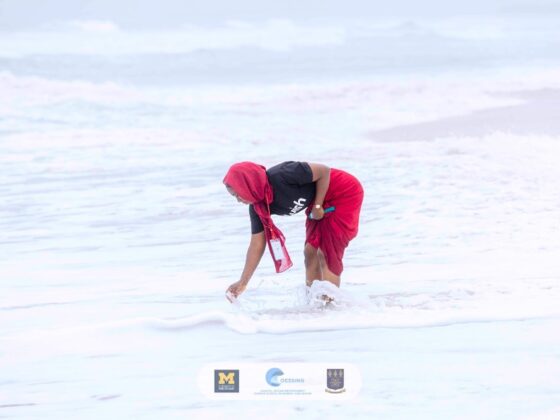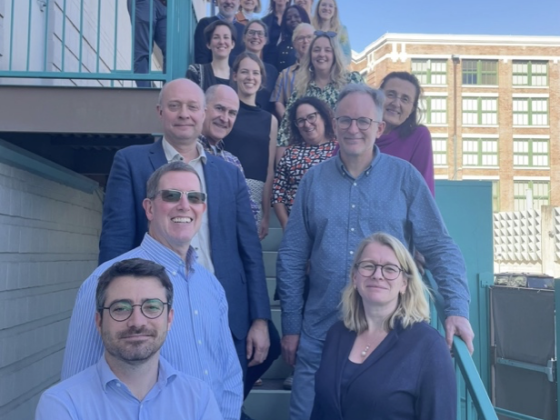Between 22 January and 22 February 2024, the global ocean community is invited to actively participate in the review process of the White Papers developed by the 10 Working Groups of the Vision 2030 process.
In a leap towards ocean knowledge-based sustainable development, the Vision 2030 process of the UN Decade of Ocean Science for Sustainable Development 2021-2030 (‘Ocean Decade’) aims to identify a common measure of success for each of the 10 Ocean Decade Challenges on the road to 2030.
Initiated in early 2023, the key outcome of this strategic ambition setting process is a set of White Papers developed collaboratively by the Vision 2030 Working Groups, one for each Decade Challenge. These documents will outline a comprehensive approach to user needs, priority datasets and residual gaps in science, and outline the strategic measures required to fulfill the objectives of each Challenge by the end of the Ocean Decade.
Play your part in building the Ocean Decade roadmap to 2030!
To ensure a diverse and inclusive approach to the Vision 2030 process, active stakeholder participation in the review of the White Papers is crucial. In this regard, we are offering a global platform for the ocean community at large to collectively advance the implementation of the Ocean Decade Challenges.
Your contributions will directly influence the revision of these documents. The consolidated version of the White Papers will be presented and discussed during the 2024 Ocean Decade Conference (Barcelona, Spain, 10-12 April 2024).
Access the draft White Papers: Explore the 10 White Papers at this link.
Provide feedback: Share your insights through the dedicated survey between 22 January and 22 February.
Webinars: A direct line to the experts! Mark your calendars for four engaging and interactive webinars featuring the Working Group Co-Chairs, during which you will be able to provide your feedback and participate in open and constructive dialogues on the White Papers. Join the discussion!
- Session 1: Science and Solutions for a Clean, Healthy and Resilient Ocean. Challenges 1, 2 and 5 – Pollution, Ecosystems and Climate. Monday 12 February from 15.00 to 16.30 CET. Watch the recording
- Session 2: Science and Solutions for a Sustainable and Resilient Ocean Economy. Challenges 3, 4 and 6 – Sustainable Ocean Economy, Sustainable Blue Food and Resilient Communities. Tuesday 13 February from 15.00 to 16.30 CET. Watch the recording
- Session 3: Science and Solutions for a Safe and Predicted Ocean. Challenges 6, 7 and 8 – Observations, Data and Forecasting / Early Warning Systems. Wednesday 14 February from 19.00 to 20.30 CET. Watch the recording
- Session 4: An Inspiring and Engaging Ocean for All. Challenges 9 and 10 – Capacity Development, Ocean Literacy, and Indigenous and Local Knowledge and Cultural Heritage. Thursday 15 February from 15.00 to 16.30 CET. Watch the recording
The Vision 2030 process presents a unique opportunity for stakeholders to actively and concretely engage in shaping the future of the Ocean Decade. Ensure your insights contribute to the success of this collective mission – join the transformative journey towards sustainable ocean management!
For more information, please contact:
Vision 2030 Team (vision2030@unesco.org)
***
About the Ocean Decade:
Proclaimed in 2017 by the United Nations General Assembly, the UN Decade of Ocean Science for Sustainable Development (2021-2030) (‘the Ocean Decade’) seeks to stimulate ocean science and knowledge generation to reverse the decline of the state of the ocean system and catalyse new opportunities for sustainable development of this massive marine ecosystem. The vision of the Ocean Decade is ‘the science we need for the ocean we want’. The Ocean Decade provides a convening framework for scientists and stakeholders from diverse sectors to develop the scientific knowledge and the partnerships needed to accelerate and harness advances in ocean science to achieve a better understanding of the ocean system, and deliver science-based solutions to achieve the 2030 Agenda. The UN General Assembly mandated UNESCO’s Intergovernmental Oceanographic Commission (IOC) to coordinate the preparations and implementation of the Decade.
About the IOC/UNESCO:
The Intergovernmental Oceanographic Commission of UNESCO (IOC/UNESCO) promotes international cooperation in marine sciences to improve management of the ocean, coasts and marine resources. The IOC enables its 150 Member States to work together by coordinating programmes in capacity development, ocean observations and services, ocean science and tsunami warning. The work of the IOC contributes to the mission of UNESCO to promote the advancement of science and its applications to develop knowledge and capacity, key to economic and social progress, the basis of peace and sustainable development.


